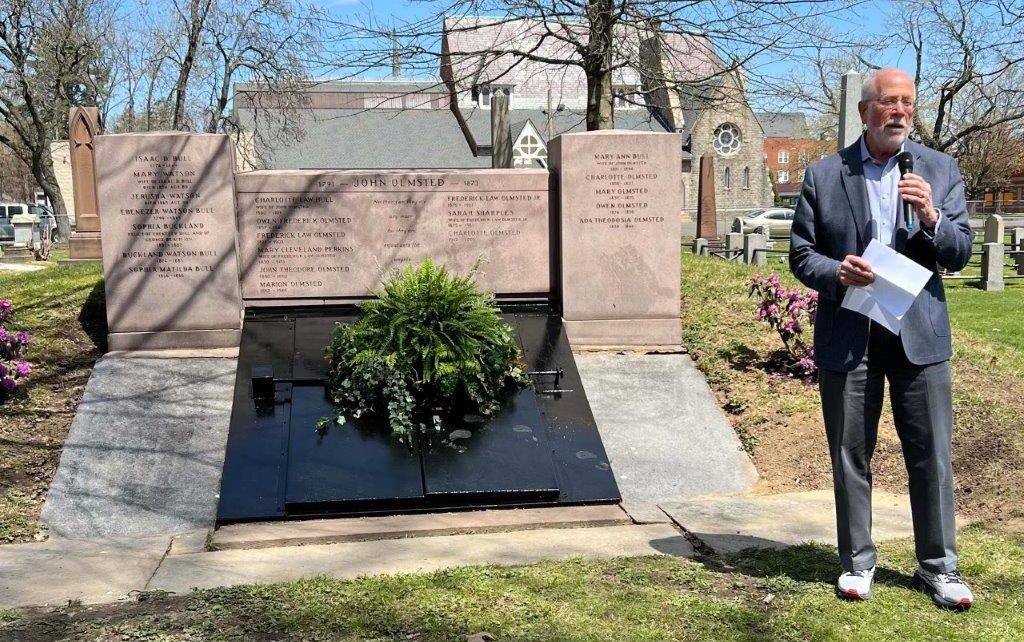<< Back
Dr. Hank Schwartz Speaks at Hartford Frederick Olmsted Commemoration

April 27, 2022
2022 marks the Institute of Living’s 200th year of operation along with another major milestone – the 200th birthday of Hartford’s native son and Institute of Living landscape architect Frederick Law Olmsted.
Olmsted is best known for designing Manhattan’s Central Park, the grounds of the U.S. Capitol, and mental health hospitals in Boston, Buffalo and in 1861 the Institute of Living.
This past weekend the Connecticut Landmarks Society presented a sold-out program titled, “Frederick Law Olmsted’s 200th: A Hartford Memorial,” featuring lectures at the downtown Isham-Terry House followed by a walk and tribute at the Keney Clock Tower and a memorial presentation at Olmsted’s burial site in Old North Cemetery.
Hank Schwartz, MD, Psychiatrist-in-Chief Emeritus at the Institute of Living, spoke on Olmsted and his landscape work at the Institute of Living regarding mental health. Other speakers included Dr. Don Poland, author of Unconscious Influence, Olmsted’s Hartford, and Hartford historian Bill Hosley.
Olmsted was born, raised and buried in Hartford, and throughout his life was also a journalist, politician, horticulturalist, artist and salesman. Among his many accomplishments were his work as a founding member of the National Park System and what would become the Red Cross. He traveled widely in America, Asia and England, and he gained practical knowledge by working for progressive farmers. In 1847, he started his own experimental farm and nursery, and soon began a career designing parks and other green spaces for America’s growing cities.
Olmsted’s designs were characterized by the re-creation of natural features and the use of wandering paths and roads. Olmsted was an apt choice for The Retreat (the former name of The Institute of Living), since he himself believed deeply in the restorative power of landscapes that recalled the beauties of nature.
The founders of Hartford HealthCare’s Charlotte Hungerford Hospital in Torrington also hired Olmsted’s firm in 1915 to create the Hospital’s entrance, walls and long approach driveway to give the grounds the look of an estate, which was popular in the day. The firm was again commissioned in the late 1920s to grade and build roads on the Torrington campus and create the front circle sidewalks, curbs and plantings to complement the construction of the new Tower Building, which was completed in 1930.